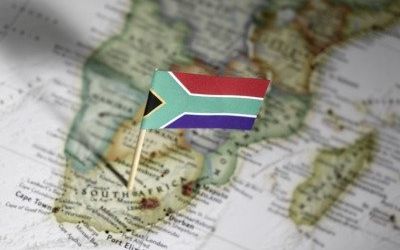SA must stop global pandering, forum told
by Penelope Mashego,
2015-11-05 05:23:03.0
WHEN it comes to international trade, SA is too much of a "good guy" and should balance its domestic interests with its global obligations.
This is one of the insights that came out of a thought leadership forum hosted by the Gauteng Growth and Development Agency.
The event took place in Sandton on Wednesday, with executives, economists and state officials discussing the decline of manufacturing and new industries.
Industrial Development Corporation economist Nico Kelder, one of the panellists, said the state did not support industries as Brics peers China and Russia, or even the US and Germany did. All four countries did not comply fully with World Trade Organisation (WTO) regulations, he said.
"SA always seems to try be the good guy, we play by the rules…. We are probably the only country that is really WTO-compliant. We sign agreements that we will not introduce certain things and then we stick to those agreements. Other countries say, ‘But, well, what are you gonna do about it?’," said Mr Kelder.
Botswana, for example, demands that its diamonds are cut locally, and SA could benefit by taking a leaf out of its neighbour’s book.
But Mr Kelder said the country had always focused on complying with international trade rules without properly considering how this would affect its domestic industries.
Economist Naum Aloyo said manufacturing’s contribution to gross domestic product (GDP) had decreased from 19% to 17% since 1993. In real terms, manufacturing contributed R180bn to the GDP in 1993, while its current share was R282bn.
More capital expenditure instead of generous social spending was needed to arrest the decline, he said.
Electricity, water and rent subsidies for key industries at provincial level could also help improve manufacturing, Mr Aloyo added.
Aspen Pharmacare senior executive Stavros Nicolaou said South Africans needed to drive the industrialisation agenda forcefully and government officials had to be less politicised and more business-oriented.
"We require a business approach," he said.
Henk Langenhoven, the chief economist at the Steel and Engineering Industries Federation of Southern Africa, said government had to concentrate on finding ways to improve efficiency.
All panellists agreed that SA needed less talk and more action.
Business and government’s strained relations also needed to improve if the country were to dig itself out of a low-growth cycle and get on the road to economic recovery.
WHEN it comes to international trade, SA is too much of a "good guy" and should balance its domestic interests with its global obligations.
This is one of the insights that came out of a thought leadership forum hosted by the Gauteng Growth and Development Agency.
The event took place in Sandton on Wednesday, with executives, economists and state officials discussing the decline of manufacturing and new industries.
Industrial Development Corporation economist Nico Kelder, one of the panellists, said the state did not support industries as Brics peers China and Russia, or even the US and Germany did. All four countries did not comply fully with World Trade Organisation (WTO) regulations, he said.
"SA always seems to try be the good guy, we play by the rules…. We are probably the only country that is really WTO-compliant. We sign agreements that we will not introduce certain things and then we stick to those agreements. Other countries say, ‘But, well, what are you gonna do about it?’," said Mr Kelder.
Botswana, for example, demands that its diamonds are cut locally, and SA could benefit by taking a leaf out of its neighbour’s book.
But Mr Kelder said the country had always focused on complying with international trade rules without properly considering how this would affect its domestic industries.
Economist Naum Aloyo said manufacturing’s contribution to gross domestic product (GDP) had decreased from 19% to 17% since 1993. In real terms, manufacturing contributed R180bn to the GDP in 1993, while its current share was R282bn.
More capital expenditure instead of generous social spending was needed to arrest the decline, he said.
Electricity, water and rent subsidies for key industries at provincial level could also help improve manufacturing, Mr Aloyo added.
Aspen Pharmacare senior executive Stavros Nicolaou said South Africans needed to drive the industrialisation agenda forcefully and government officials had to be less politicised and more business-oriented.
"We require a business approach," he said.
Henk Langenhoven, the chief economist at the Steel and Engineering Industries Federation of Southern Africa, said government had to concentrate on finding ways to improve efficiency.
All panellists agreed that SA needed less talk and more action.
Business and government’s strained relations also needed to improve if the country were to dig itself out of a low-growth cycle and get on the road to economic recovery.

























Change: -1.56%
Change: -1.66%
Change: -1.08%
Change: -1.11%
Change: -6.23%
Data supplied by Profile Data
Change: -0.24%
Change: -0.66%
Change: -1.56%
Change: 0.00%
Change: -0.70%
Data supplied by Profile Data
Change: 0.05%
Change: -0.06%
Change: 0.12%
Change: 0.17%
Change: -0.21%
Data supplied by Profile Data
Change: 0.15%
Change: 0.37%
Change: 0.14%
Change: -0.51%
Change: 0.69%
Data supplied by Profile Data